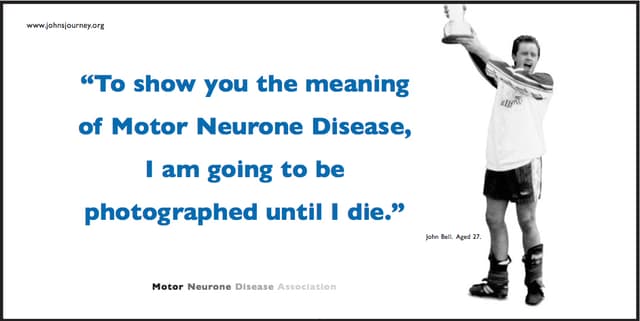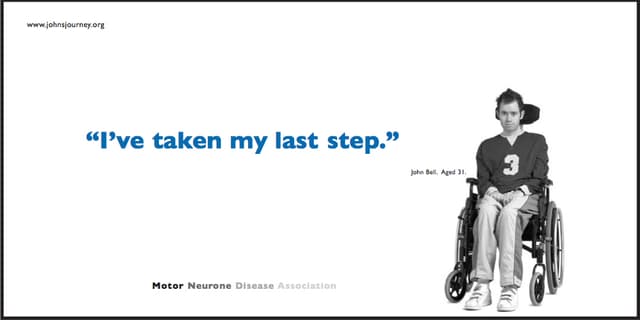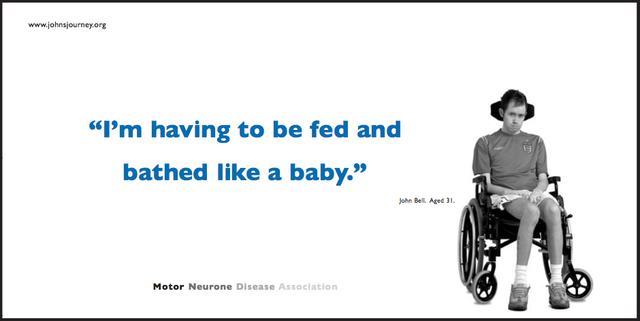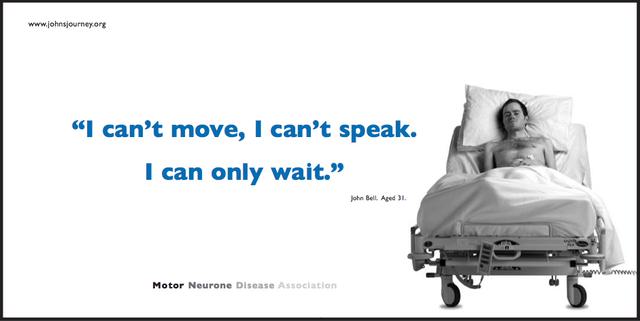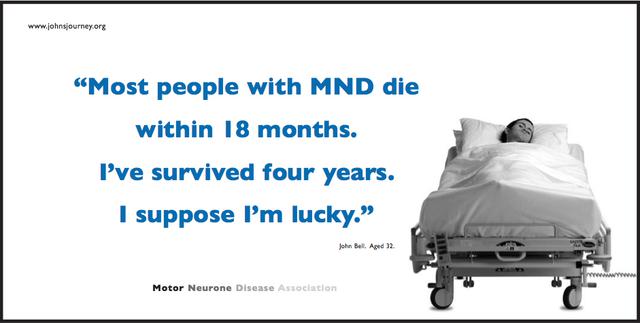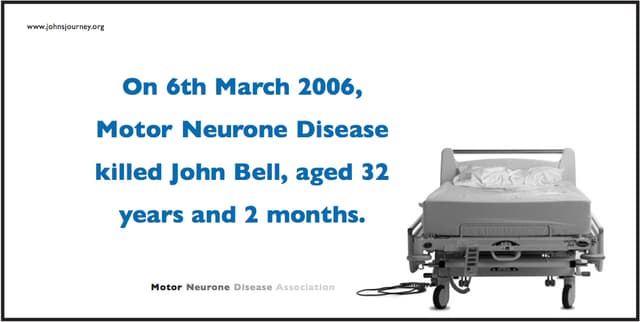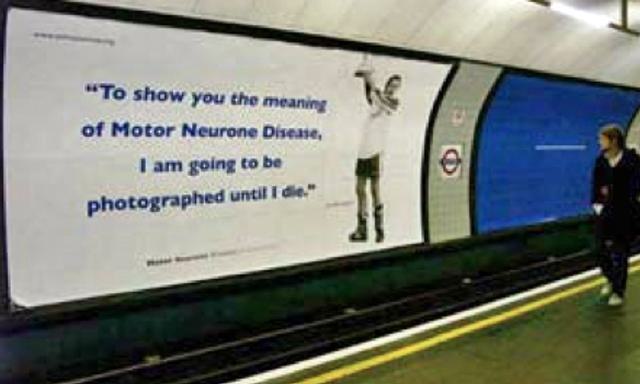Motor Neurone Disease Association (MNDA): John’s journey
- Exhibited by
- Reuben Turner, creative director, the Good Agency.
- Added
- July 01, 2014
- Medium of Communication
- Posters.
- Target Audience
- Awareness.
- Type of Charity
- Healthcare.
- Country of Origin
- UK.
- Date of first appearance
- October, 2005.
SOFII’s view
These posters tell the story of John Bell, a young man who was struck down with motor neurone disease. His courage and that of his family in allowing his deterioration to be photographed and then exhibited in the London Underground is humbling. His wife, Charlotte, and their young boys must miss him sorely, but hopefully they take comfort that John’s story shows the stark reality of this devastating disease and that is has done so much to raise awareness of it and the funds necessary to find a cure.
Creator / originator
Motor Neurone Disease Association, Tony Muranka and Peers Carter, John Bell and family.
Summary / objectives
Conceived as an awareness- and profile-raising campaign, as well as a television documentary, John’s journey went on to become an incredibly successful fundraising campaign that raised £230,000 and prompted a £7.5m government investment into research.
Background
The key issue of the campaign was to change the lack of awareness of motor neurone disease and the MNDA. It was also created to correct the widespread misunderstanding that the condition is not fatal – a misconception that has arisen in part because its best-known sufferer, Professor Stephen Hawking, has lived with the disease for over 30 years.
In addition, the campaign also aimed to increase government funding for medical research into a cure.
Special characteristics
The campaign was managed by MNDA, Tony Muranka and Peers Carter, the creatives gave their time for free and poster sites in key London Underground stations were donated by CBS media.
An early example of online integration, the campaign used its website as the main response mechanism for donations. Supporters were also able to leave messages for John and his family online.
This particular campaign ended when John Bell died in 2007 aged 32, having lived with MND for almost six years. He left behind his wife, Charlotte, and two young sons.
Influence / impact
When I saw the first poster on the Underground, it stopped me in my tracks. When I saw the last one 20 months later it was like a punch in the stomach. Yet this shocking campaign was not confected and gratuitous, but raw and honest. It changed the sector, which sometimes misuses shock, by showing that it can be used without offence. It was also an excellent model of integrated campaigning.—Stephen Cook, editor, Third Sector magazine, UK.
Results
Prompted and unprompted awareness of the organisation doubled; the website received over 70,000 unique visitors. Perception of MND was changed from being a chronic illness to a serious, sudden, debilitating and fatal one. The campaign raised over £230,000 for the MND Association directly (against a cost-covering target of £50,000) and prompted the government to match MNDA’s target of £7.5 million invested in research.
Merits
An early and inspirational example of joined-up thinking and an integrated campaign. But above all a relentlessly honest and emotional story telling the raw truth about the effect of MND on people suffering from it and their families.
Other relevant information
Since John’s journey the charity has continued with the approach, making much more use of the social and online tools now available. Patrick the incurable optimist and Alastair the optimist have both agreed to tell the story of their journeys with MND first-hand.
They have also set themselves targets to reach before MND robs them of their abilities. Patrick is an artist and is aiming to paint a hundred portraits; Alastair, a musician, is recording a new album. They are helping to create a new dynamic in this kind of communication – placing the onus on direct storytelling and contact between supporters and people affected by the condition. Their stories are powerful, inspiring, direct, humbling and honest.
Final notes
SOFII recently received this email from John's mother, to clarify the date of his death.
John did not die on 6th March 2006. He died on 10th February 2007, the day before 33rd Birthday. I know this because I am his mother.
SOFII’s I Wish I’d Thought Of That 2012 – Reuben Turner presents MNDA
Also in Categories
Tags
- Posters



